How to manage anxiety: A psychologist’s tips for how to stop worrying
Mental Health Awareness Month 2022: Learning how to manage anxiety takes time, but it’s entirely possible with the right tools.
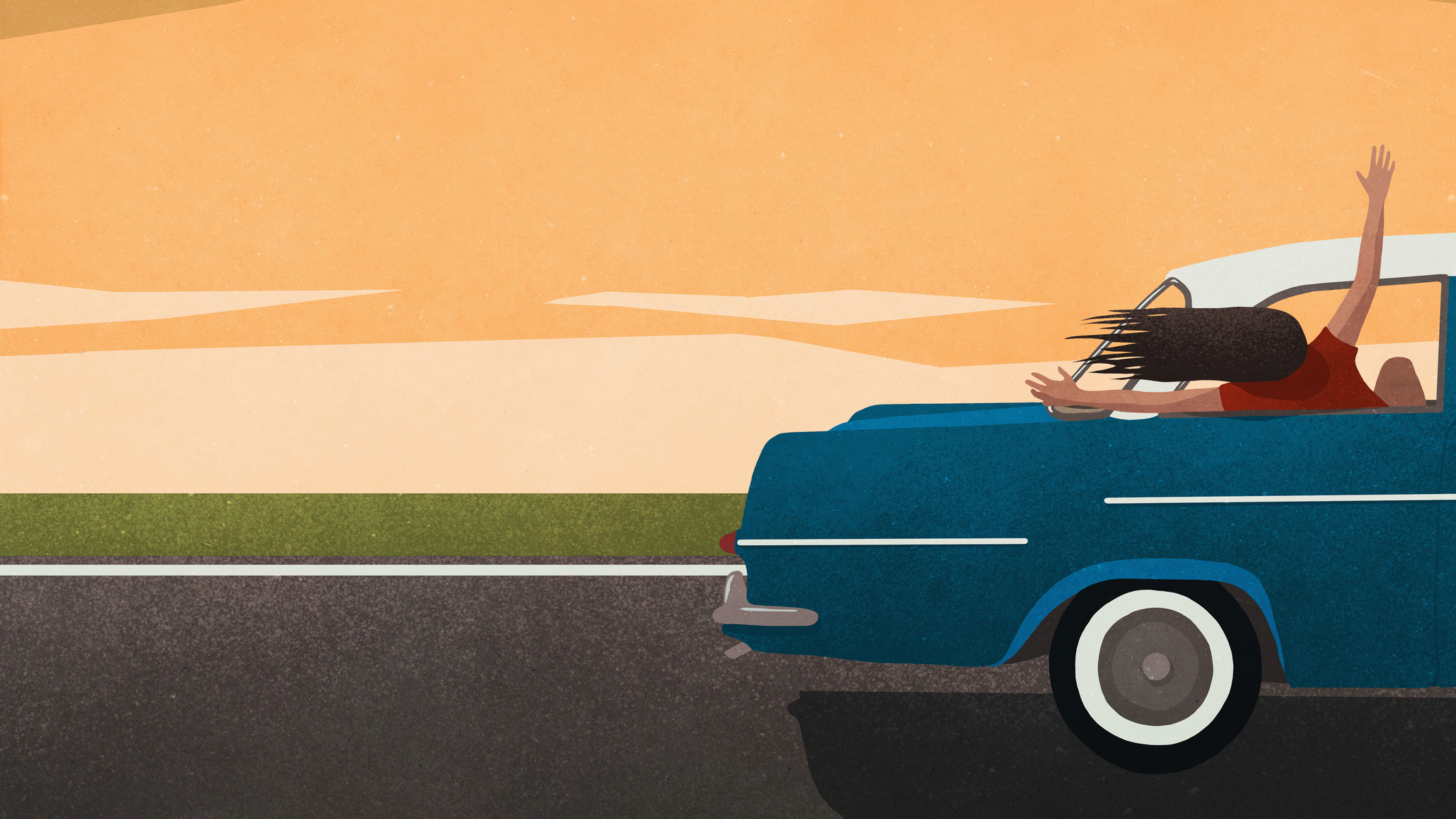
Sign up to receive the latest news, reviews, buying guides and deals direct to your inbox
You are now subscribed
Your newsletter sign-up was successful
Living with anxiety is hard, yet an estimated 284 million people around the world have experienced some form of it since 2017. So learning how to manage anxiety is important, whether you have a mild form or a general anxiety disorder that seeps into every aspect of your life. And as we're now in the middle of Mental Health Awareness Month 2022, it's a good time to talk about this.
When you have anxiety, it becomes harder to think clearly and to make confident decisions, so you start to second-guess yourself a lot more. Over time, that chips away at your confidence, which makes you even more anxious. Fun, huh? Anxiety can also affect your slumber (learn how to stop anxiety ruining your sleep), so you often wake up feeling tired and off-color. And on it goes.
Speaking to your doctor is a priority if you're experiencing symptoms of anxiety, but until you get that appointment, there are some proven tools you can use at home to help you better manage anxiety and to stop it from dominating your life. This includes getting outside for a daily stroll, come rain or shine, to enjoy the proven mental health benefits of walking.
If you’re too anxious to head outdoors, consider downloading one of the best meditation apps for anxiety instead. Meditation puts a keen focus on deep breathing (in a similar to the Relaxation Response), and is a popular tool for getting to grips with anxiety, as we discover below.
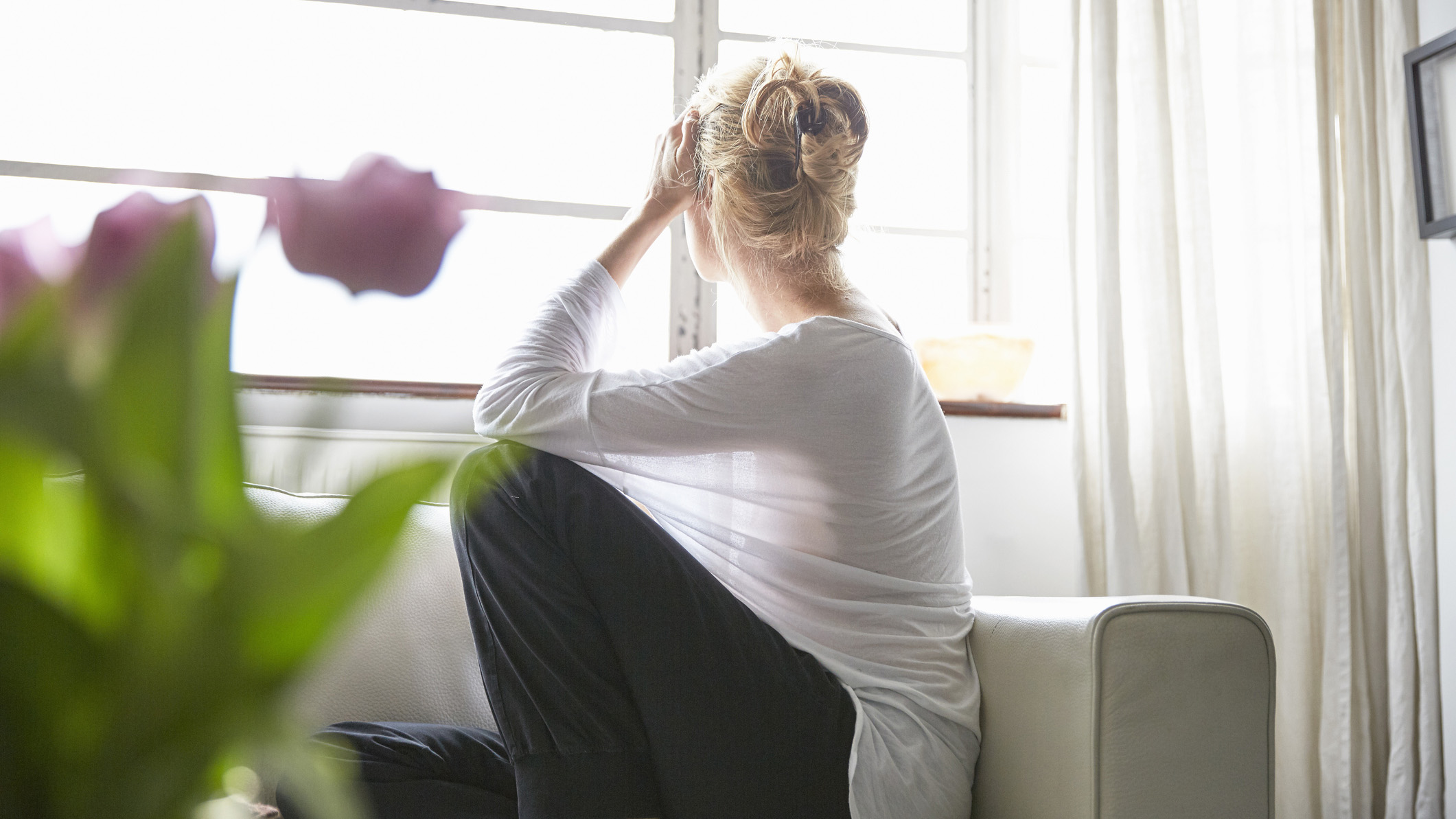
How anxiety affects your health
Long-term anxiety is exhausting. It can affect your sleep, happiness, relationships and work, and can undermine your self-confidence. As scary as it can be when you’re in the middle of it, for the most part anxiety disorders are treatable with professional help. When we learn how to stop worry from dominating our thoughts, life becomes a little easier again. Joy starts finding its way back in, and we start living with more ease.
Remember what it was like to feel truly relaxed? Anxiety and resulting stress often get in the way of that. They can make you feel physically tense and on edge, but with the right tools, such as CBT, talking therapy or medication, you can get a handle on it.
One in three people is affected by anxiety at some point in life
Johanna Scheutzow, MSc
We spoke to Johanna Scheutzow, MSc in Organizational Psychiatry and Psychology, King's College London, who tells us that anxiety disorders are, "the most frequent mental health conditions worldwide. We all know someone who has struggled with anxiety symptoms, as one in three people is affected by anxiety at some point in life."
Sign up to receive the latest news, reviews, buying guides and deals direct to your inbox
Through her work as a Business Psychologist with Thrive, a mental wellbeing platform that supports over two million people globally, with tools designed to help people learn how to stop anxiety and stress from overtaking their lives, Scheutzow is familiar with the effects of anxiety disorders and how to manage them, as we discuss throughout this feature.
What is anxiety?
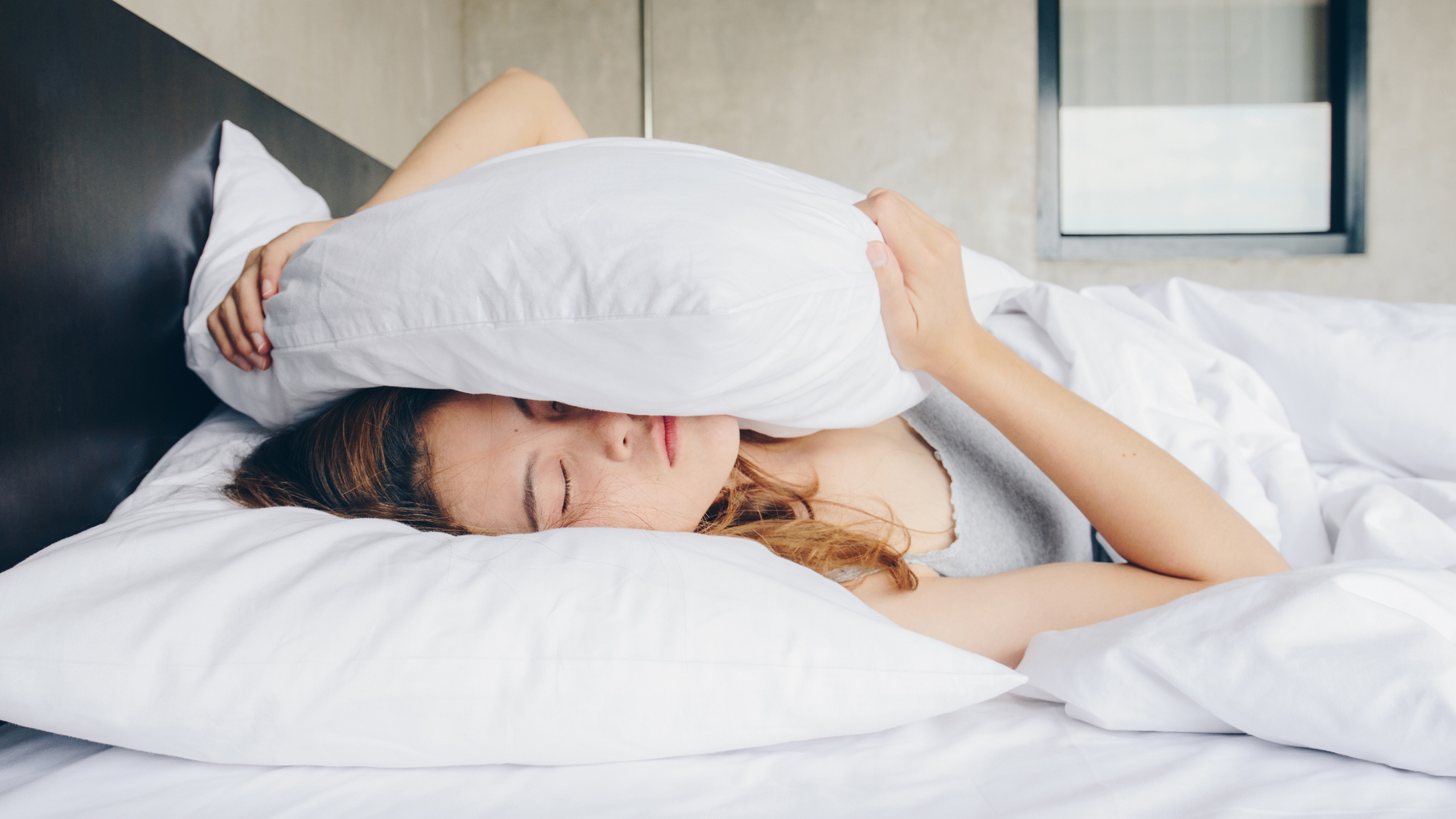
How to manage anxiety: What is anxiety?
Put three people in a room together and ask them to describe anxiety, and there's a high chance you'll get completely different answers. Why? Because anxiety isn't the same for each of us, and how we experience it personally depends on the type of anxiety disorder we're living with and the severity of it.
One thing that is common is the stress reaction, as Scheutzow explains. "We experience anxiety if our normal stress reaction is excessive. Stress and the stress response evolved to literally save our lives, and in the right circumstances they are essential to our survival," she says.
"Feeling nervous or excited before a presentation may help some people perform well. However, others in the same situation may have a strong reaction and freeze."
"Stress sharpens up our senses and prepares our body to do one of three things: fight, flight, or freeze. This response when encountering an attacker, or a car heading our way when riding to work, for example, will most definitely save us. The same response can be triggered by things that our modern minds perceive as threats, but for which this response is not helpful. For example, getting ready to fight our workload doesn’t help, and running from debt is useless."
So when our bodies prepare to get physical and literally run from danger, and then we don't, we can cause harm to ourselves on a mind-body level. "That’s because getting revved up takes a toll on our bodies," explains Scheutzow, "and it’s harmful because the health-promoting effect of exercise never happens."
Interestingly, some modern-life challenges do benefit from the stress response, but again, it comes down to the individual experiencing it. "Feeling nervous or excited before a presentation may help some people perform well. However, others in the same situation may have a strong reaction and completely freeze."
Causes of anxiety
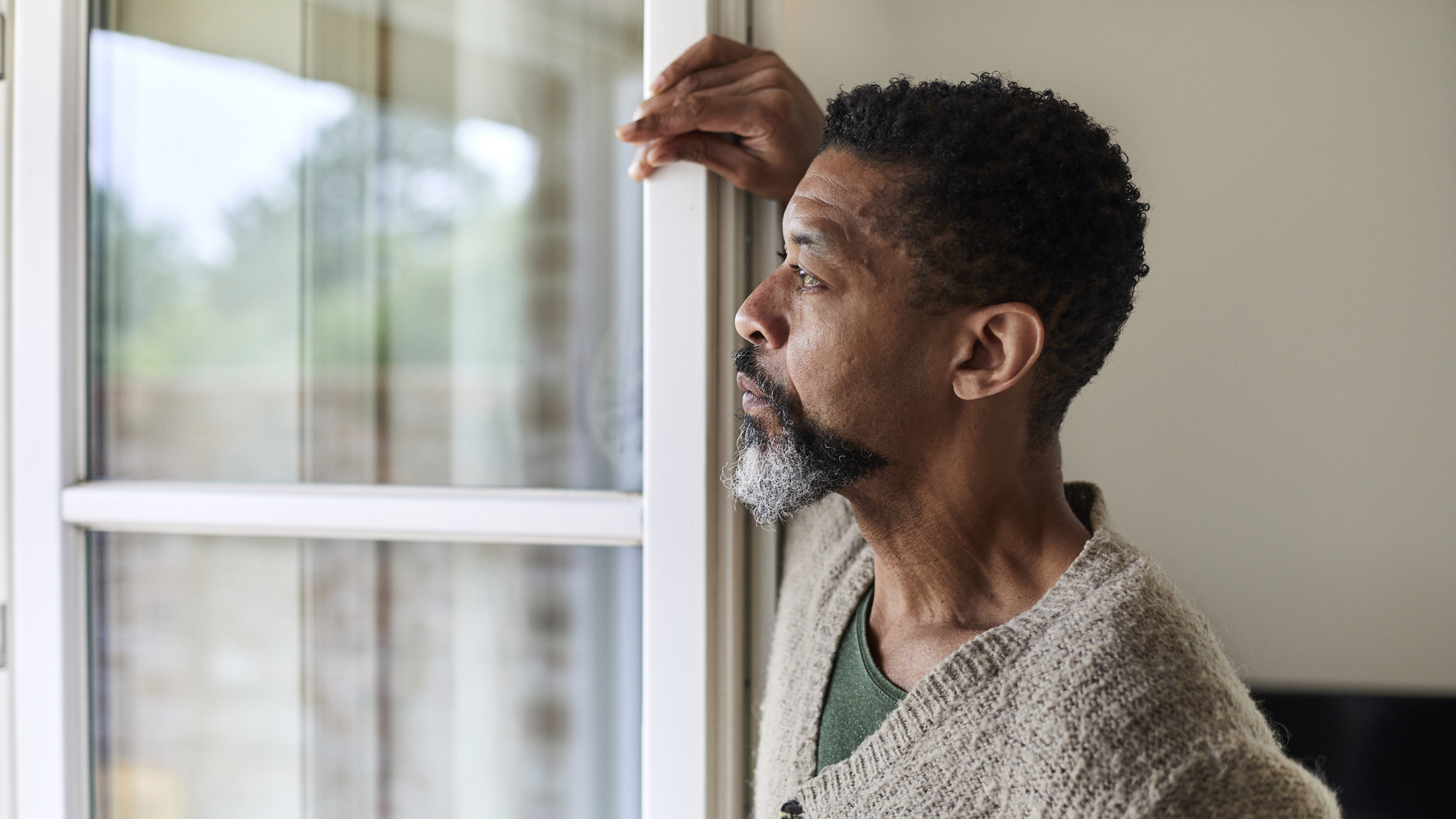
Symptoms and causes of anxiety
Just as our experiences of anxiety disorders often differ, so do the triggers. "Anxiety disorders can be caused by the environment, the way we perceive it due to our circumstances or upbringing, and our genes and other biological factors," says Scheutzow, and often these factors interact - there's seldom one factor alone.
"There are three kinds of factors: those that put us at risk of developing the condition, also called predisposing factors (genes or upbringing); factors that trigger the condition or precipitating factors (for example, a stressful life event); and factors that keep the anxiety going (for instance, unemployment, or ongoing relationship difficulties)."
According to the Anxiety and Depression Association of America, 'anxiety disorders develop from a complex set of risk factors, including genetics, brain chemistry, personality, and life events'. The British NHS lists the symptoms of anxiety as (depending on the specific anxiety disorder):
- Faster, irregular or more noticeable heartbeat
- Loss of appetite
- Feeling tense or nervous
- Being unable to relax
- Worrying about the past or future
- Not being able to sleep
- Worried about trying new things
- Not being able to enjoy your leisure time
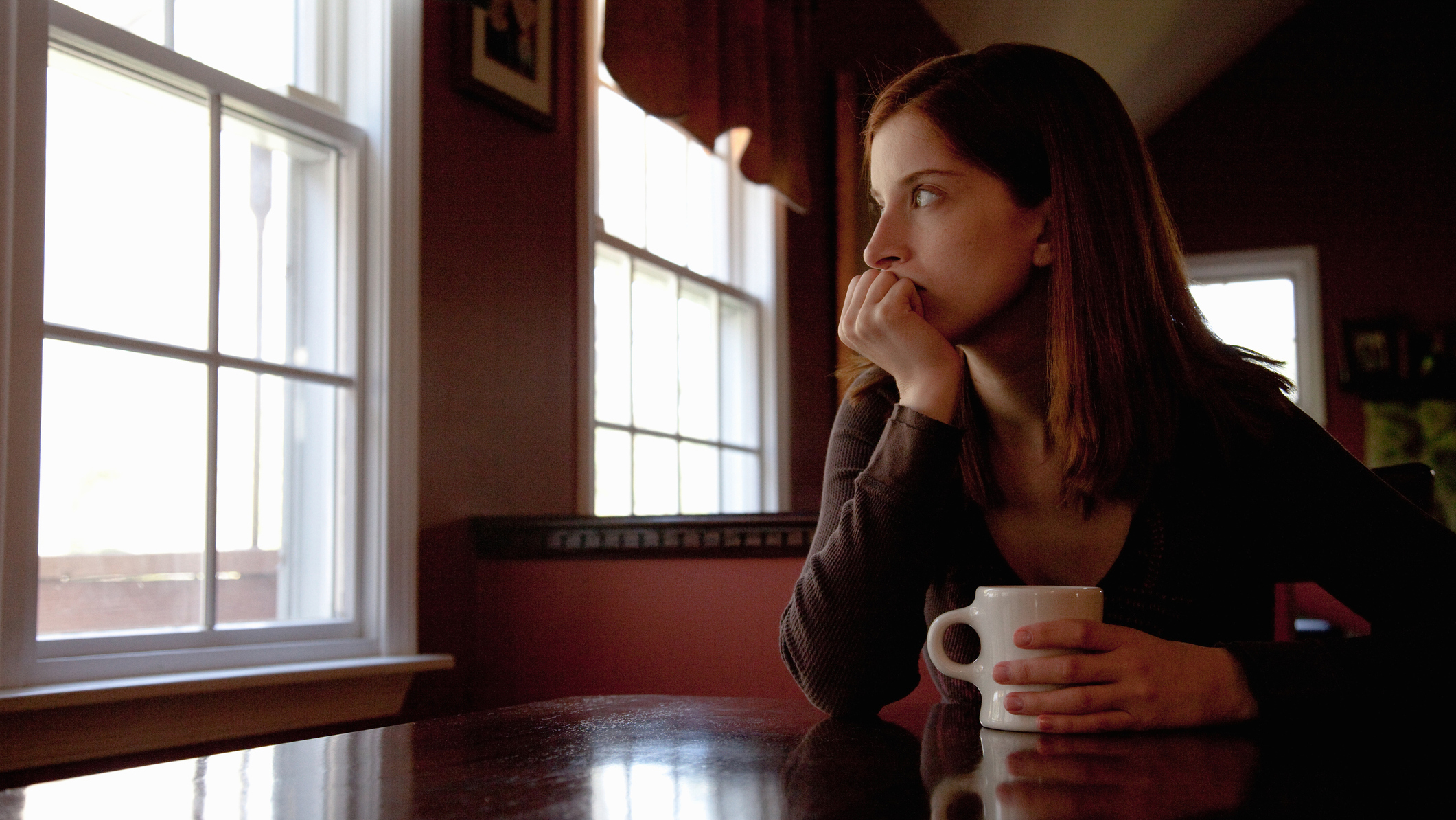
Types of anxiety
What are the different types of anxiety?
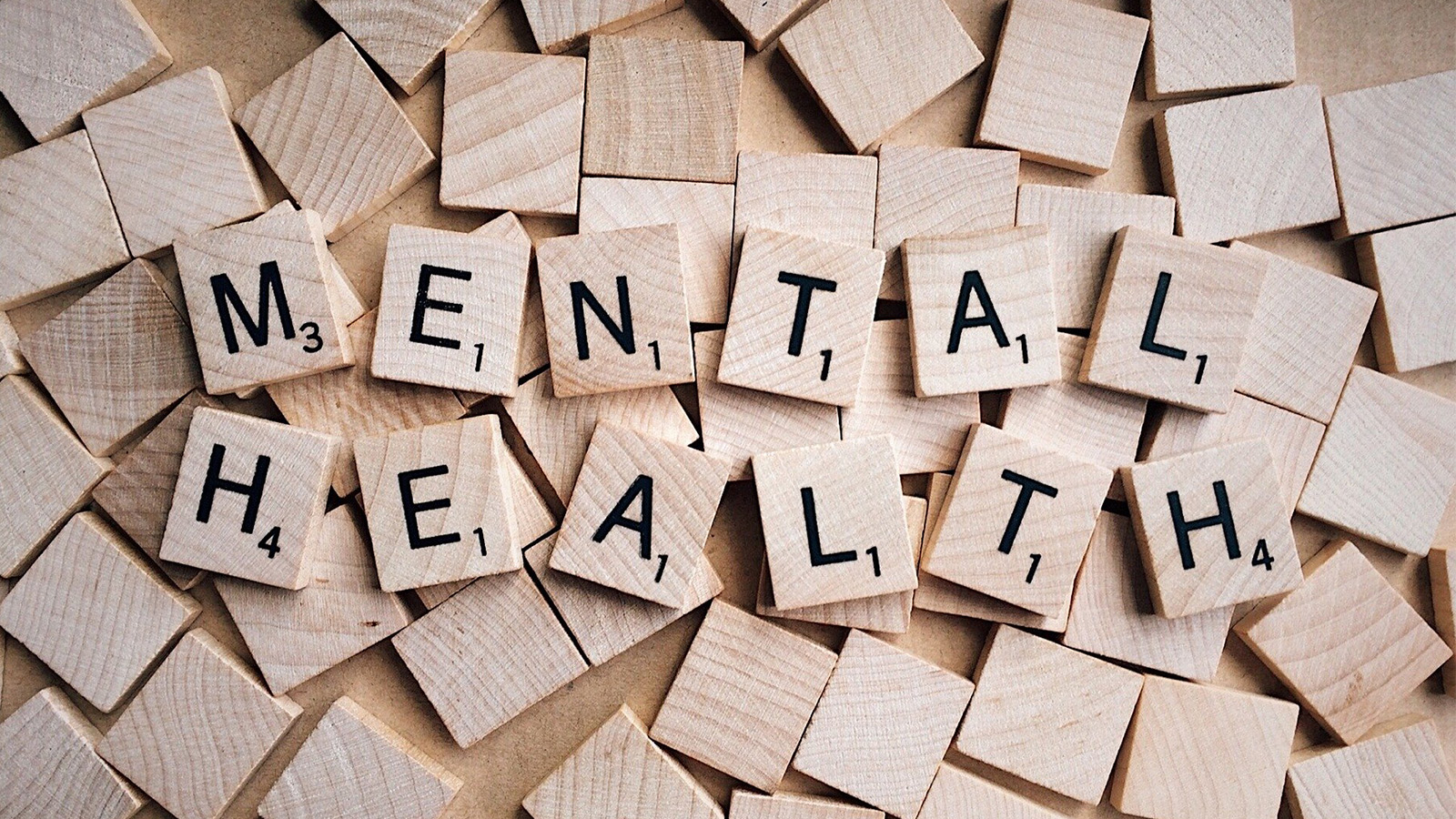
"In anxiety disorders, we experience a very strong stress reaction that, instead of helping us perform better, makes us feel distressed and stops us from being able to function. This tends to happen when our bodies and minds react to something not life-threatening as if it was [life-threatening]," says Scheutzow. "The body’s reaction includes shallow breathing, racing pulse, sweating, pins and needles, and a churning sensation in our stomachs, among other things. The mind component includes excessive worry and thinking of the worst possible scenarios as if they were not just likely, but the thing that will definitely happen."
Generalized anxiety disorder (GAD) is a very common type of anxiety, but there are others too, and all are equally deserving of treatment. According to Scheutzow, “There are various anxiety disorders, but they are all characterized by excessive fear and worry, distress and/or major problems around being able to function at work, at home, or in life in general."
That's why, when we're living with anxiety, it isn't unusual for us to feel as though we want to avoid certain situations, things or people. We view such avoidance tactics as a form of protection, of keeping ourselves (and in some circumstances those we love) safe from whatever or whomever is making us feel anxious.
“Most disorders have a specific trigger, except generalized anxiety disorder," reveals Scheutzow. "In agoraphobia, a person tends to fear situations they see as inescapable. This could be crowds or a tunnel, for example. Specific phobias, like arachnophobia, refer to very specific situations or things (like spiders).
“In social anxiety disorder, the person is very worried about how they come across in social situations and so tend to avoid gatherings, like parties or going to the pub. With obsessive-compulsive disorder, the person has a repetitive thought like, ‘I’ve forgotten to lock the house’, and feel compelled to do things to repeatedly check that their house is locked.
“With post-traumatic stress disorder, the person experiences flashbacks and nightmares of the traumatic event, is sensitized to things that may remind them of the event, and will avoid them if possible.”

GAD
How to manage anxiety if you have GAD
Do you often find yourself worrying about different things, events, people or social activities? Do you feel as though your worrying is out of control, and that you're worrying about things most of the time? You're not alone. Generalized Anxiety Disorder (GAD) is a major player in the world of anxiety, and can often leave us feeling constantly on edge and unable to truly let go and relax.
If you suspect you have GAD, there are tell-tale signs to watch out for. “Generalized anxiety disorder is characterized by marked symptoms that persist for at least several months, and that happen most days," Scheutzow explains.
"The symptoms can be general worry and unease (free-floating anxiety) or excessive worry focused on multiple everyday events, most often concerning family, health, finances, and school or work.
"If you have significant symptoms, seek help. A consultation with your doctor is a good first step"
"The person also tends to have tension in their muscles, restlessness, problems with concentration, irritability and trouble sleeping. These symptoms cause significant distress and problems functioning in everyday life, or both."
Depending on the severity of symptoms, you may find that self-management methods help you control your anxiety. Think relaxation techniques, but also: "mood journaling, exercise and sleep hygiene. Mild to moderate cases can benefit from CBT, either face to face, over the phone, or using a self-management app," says Scheutzow. "In some cases, medication might be necessary. If you have significant symptoms, seek help. A consultation with your doctor is a good first step.”
Anxiety relief
How to manage anxiety using breathing techniques
If you suffer from panic attacks, relaxation and learning how to gently calm yourself can be a real life-line. “Panic attacks can be eased by learning relaxation techniques like deep belly breathing or deep muscle relaxation. Medication can be prescribed as well if necessary.”
If you want to try deep breathing for yourself, watch the 4-7-8 breathing technique above, developed by Harvard-trained integrative medicine practitioner Dr Andrew Weil, and something that he describes as a 'natural tranquilizer'.
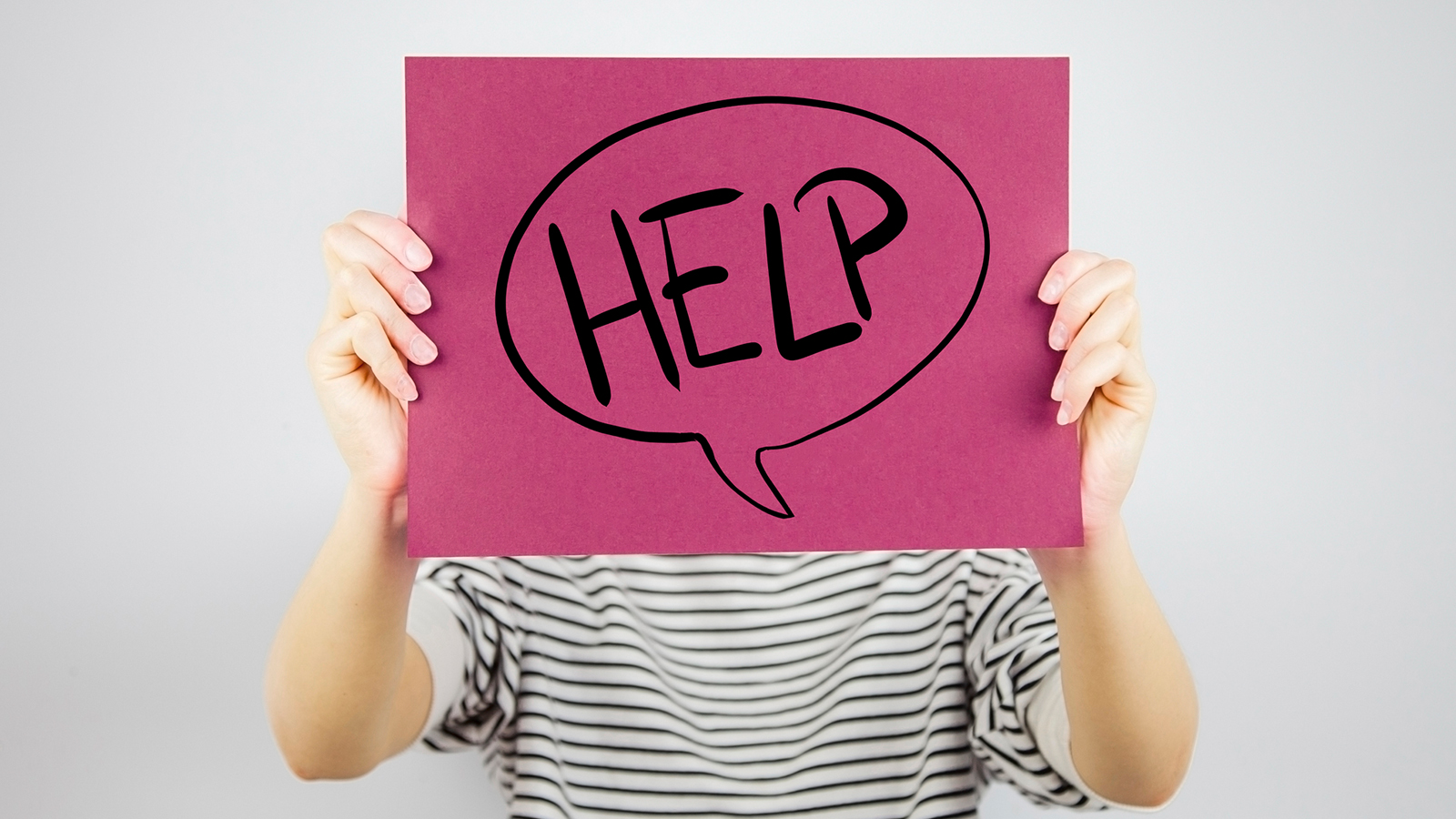
There are various websites and apps where you can find support for managing an anxiety disorder. These include the Anxiety and Depression Association of America (ADAA), the American Psychiatric Association, and Mental Health America, which offers free screening tools for anxiety.
Treatments and tools to help manage anxiety
“Because anxiety affects our minds, bodies and actions, common treatments focus on all of these aspects. Cognitive Behavioral Therapy (CBT) helps identify helpful from unhelpful thinking, and helpful and unhelpful behaviors," reveals Scheutzow when talking about the manifold benefits of CBT for anxiety.
"As worrying is often focused on potentially threatening situations in the future, CBT helps challenge our fears and puts thoughts back into perspective (‘How likely is our nightmare scenario, really?’).
"Mindfulness may help us get better control over our attention and, instead of letting it be captured by worrying thoughts, we can disengage and pay nonjudgemental attention to the whole picture, giving us the ability to detach our thoughts from the sense of threat."

How to manage anxiety with 'worry' journalling

One of the most famous books about anxiety is First, We Make The Beast Beautiful by Sarah Wilson, available in various formats, including as an Audible audiobook. It details Wilson’s experience of living with anxiety, and how she’s learned to make peace with it. Two books regularly recommended by therapists are Be Calm: Prove Techniques to Stop Anxiety Now by Jill Weber PhD, and Retrain Your Brain: Cognitive Behavorial Therapy in 7 Weeks by Seth J Gillihan, PhD. These treatment-focused books could help you manage anxiety at home in between therapy sessions.
Over the years, journaling has become a popular tool for helping people manage anxiety, and you don't need to dedicate a whole heap of time to it either. "Start with five to 15 minutes a day, no more than 30 minutes per day, and write down anything that's of concern," instructs Scheutzow. "New worries can be written down during the day whenever they come up. It’s important not to do this in the bedroom." That's because your bedroom should be a sleep sanctuary, not a worry palace.
“Some worries might be solved during the day when taking allocated ‘worry time’, and others will be put into perspective as a person challenges them by thinking, ‘So what?’. Regularly writing down one's worries and feelings may help challenge hypothetical concerns and negative emotions, and puts things into perspective.
Let's not forget about gratitude either, as focusing on what's going right, or what feels right, can help dilute anxious feelings. “It’s useful to also write down something that we feel good about or feel grateful for. When we’re anxious, our minds tend to automatically focus on everything that could go wrong or that has gone wrong. This is called a negative cognitive bias. By making ourselves write down positive things, we can shift that bias to a more healthy one.”

The best exercises for anxiety
Sometimes when you're feeling anxious, the last thing you want to do is go for a run or hit the mat for a yoga session, but quite often exercise is the best form of medicine for taking the edge off anxiety. After all, we already know there are proven mental health benefits of walking, so it makes sense that other forms of exercise can benefit our mental wellbeing too.
“When we are anxious, our body is reacting to the stress response which originally prepares for a threat," explains Scheutzow. "But as this threat is often hypothetical, our body does not release the tension. Therefore, exercise can be very effective to release that tension and set our body back to normal.
"Regular exercise like running, swimming and yoga may be one key to managing anxiety and releasing stress"
“Moreover, the body releases substances that calm us down after exercise, which makes sense as it expects exercise to happen after a moment of stress. Therefore, practicing regular exercise like running, swimming and yoga may be one key to managing anxiety and releasing stress.”
If you’d like help with learning how to move more and build in some regular exercise, take a look at our guide to the best fitness trackers for motivation. Or if running appeals, try the best treadmills for indoor exercise.
Getting help

How to get help for anxiety
Living with anxiety is easier when you have support, and in most cases that begins with speaking to a trusted family member or friend and making an appointment to see your doctor. Teletherapy is a convenient way to visit with a health professional if you’re unable to attend in person, and it’s particularly well-suited to discussing mental health issues as you don’t normally need to have a physical examination.
The Anxiety and Depression Association of America (ADAA) is a good resource for learning more teletherapy, including where to find a licensed therapist or counselor, and various online support groups for peer support from people who are currently living with anxiety. The National Alliance on Mental Illness also breaks down the various treatments and support available.
In the UK, MIND is a fantastic mental health charity that offers plenty of information and support for people experiencing anxiety disorders, while the NHS has an excellent information portal for anxiety disorders.
Looking for further health and wellness content? We recommend our guides to the best health insurance providers for various health coverage needs, and the best Medicare Part D plans for help with the cost of prescription drugs.
Claire is Health and Wellness Editor at Top Ten Reviews and covers all aspects of health, wellbeing and personal care. With over 17 years' experience as a qualified journalist, writer and editor, Claire has worked across some of Future's most prestigious, market-leading brands. Due to past struggles with insomnia, she is particularly passionate about the role quality sleep plays in our physical and mental health, and loves helping readers to sleep better. Claire is always keen to hear from brands regarding products and services that can help readers feel healthy, happy and empowered.

